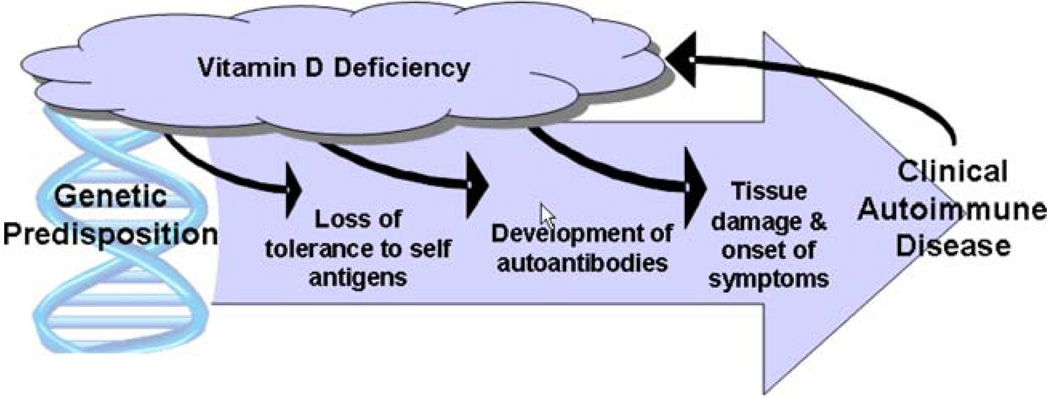Fig. 2.
Proposed mechanism for vitamin D’s influence on the development and progression of autoimmunity. 1,25(OH)2D regulates DC maturation and the differentiation and activity of CD4+ T cells to prevent the loss of self-tolerance. In a genetically predisposed individual, it is more likely that autoantibodies will develop and proliferate in the setting of vitamin D deficiency. Ultimately, deficiency of vitamin D may act as an environmental trigger of clinical disease. Left untreated, the cycle of vitamin D deficiency will continue as many autoimmune diseases and several medications used to treat them lead to sun avoidance from photosensitivity. The role of vitamin D status in the natural history of autoimmunity warrants further investigation

